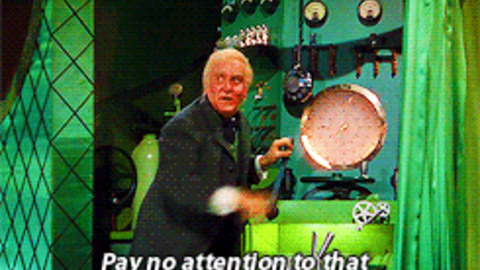-
Kazmyr
- Posts: 811
- Joined: Wed Nov 30, 2016 10:33 am
Post
by Kazmyr » Sat Sep 30, 2017 7:07 am

Information becomes available potentially forcing public servants to be accountable for their actions? Ghastly.
Martin Hash wrote:Liberty allows people to get their jollies any way they want. Just don't expect to masturbate with my lotion.
-
Speaker to Animals
- Posts: 38685
- Joined: Wed Nov 30, 2016 5:59 pm
Post
by Speaker to Animals » Sat Sep 30, 2017 11:21 am
The amazing thing about that case was how NONE of the other cops intervened and said no. That Milgram experiment was no joke.
This might be why American servicemen get drilled with Geneva Convention and what constitutes an unlawful order all the time. Maybe police need similar training and a similar outlook.
-
clubgop
- Posts: 7978
- Joined: Wed Nov 30, 2016 5:47 pm
Post
by clubgop » Sat Sep 30, 2017 11:52 am
Speaker to Animals wrote:The amazing thing about that case was how NONE of the other cops intervened and said no. That Milgram experiment was no joke.
This might be why American servicemen get drilled with Geneva Convention and what constitutes an unlawful order all the time. Maybe police need similar training and a similar outlook.
Yeah, soldiers don't have a powerful well connected union backing their play either.
-
Fife
- Posts: 15157
- Joined: Wed Nov 30, 2016 9:47 am
Post
by Fife » Sat Sep 30, 2017 12:00 pm
Maybe we would do well to have SCOTUS totally eliminate the fiction of qualified immunity for cops doing this kind of shit once and for all. Gorsuch will travel into places on this topic that Scalia wouldn't touch with a ten-foot pole. Such a case would make a nice combo punch along with
Janus, coming up this term.
Is it time to hold police officers accountable for constitutional violations?
The doctrine of qualified immunity operates as an unwritten defense to civil rights lawsuits brought under 42 U.S.C. § 1983. It prevents plaintiffs from recovering damages for violations of their constitutional rights unless the government official violated “clearly established law,” usually requiring a specific precedent on point. This article argues that the doctrine is unlawful and inconsistent with conventional principles of statutory interpretation.
Members of the Supreme Court have offered three different justifications for imposing such an unwritten defense on the text of Section 1983. One is that it derives from a common law “good faith” defense; another is that it compensates for an earlier putative mistake in broadening the statute; the third is that it provides “fair warning” to government officials, akin to the rule of lenity.
But on closer examination, each of these justifications falls apart, for a mix of historical, conceptual, and doctrinal reasons. There was no such defense; there was no such mistake; lenity ought not apply. And even if these things were otherwise, the doctrine of qualified immunity would not be the best response.
The unlawfulness of qualified immunity is of particular importance now. Despite the shoddy foundations, the Supreme Court has been reinforcing the doctrine of immunity in both formal and informal ways. In particular, the Court has given qualified immunity a privileged place on its agenda reserved for few other legal doctrines besides habeas deference. Rather than doubling down, the Court ought to be beating a retreat.
See also,
https://www.washingtonpost.com/news/vol ... f89d7b27c1
-
de officiis
- Posts: 2528
- Joined: Wed Nov 30, 2016 11:09 am
Post
by de officiis » Sat Sep 30, 2017 6:08 pm
The answer is a public apology, coupled with an explanation of why the error was made and a commitment to correct whatever deficiency caused the error in the first place. Trying to conceal the error is wrong.



